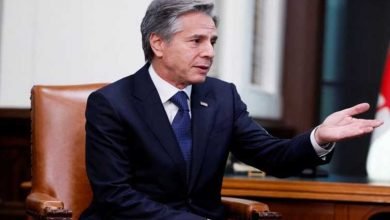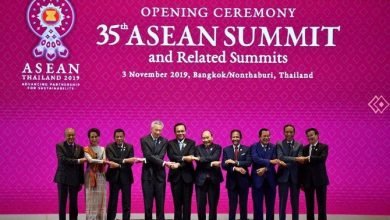international
Macron tells PM to hold talks after worst unrest in Paris for decades
[su_label type=”info”]SMA News – Agencies[/su_label][su_spacer size=”10″] French President Emmanuel Macron ordered his prime minister on Sunday to hold talks with political leaders and demonstrators, as he sought a way out of nationwide protests after rioters turned central Paris into a battle zone.
Riot police on Saturday were overwhelmed as protesters ran amok in Paris’s wealthiest neighborhoods, torching dozens of cars, looting boutiques and smashing up luxury private homes and cafes in the worst disturbances the capital has seen since 1968.
The unrest began as a backlash against fuel tax hikes but has spread. It poses the most formidable challenge yet to Macron’s presidency, with the escalating violence and depth of public anger against his economic reforms catching the 40-year-old leader off-guard and battling to regain control.
After a meeting with members of his government on Sunday, the French presidency said in a statement that the president had asked his interior minister to prepare security forces for future protests and his prime minister to hold talks with political party leaders and representatives of the protesters.
A French presidential source said Macron would not speak to the nation on Sunday despite calls for him to offer immediate concessions to demonstrators, and said the idea of imposing a state of emergency had not been discussed.
Arriving back from the G20 summit in Argentina, Macron had earlier rushed to the Arc de Triomphe, a revered monument and epicenter of Saturday’s clashes, where protesters had scrawled “Macron resign” and “The yellow vests will triumph”.
The “yellow vest” rebellion erupted out of nowhere on Nov. 17, with protesters blocking roads across France and impeding access to some shopping malls, fuel depots and airports. Violent groups from the far right and far left as well as youths from the suburbs infiltrated Saturday’s protests, the authorities said.
Government spokesman Benjamin Griveaux had indicated the Macron administration was considering imposing a state of emergency. The president was open to dialogue, he said, but would not reverse policy reforms.
“We won’t change course. We are certain of that,” he told Europe 1 radio.
As he spoke, workmen in the upper-crust district of central Paris set about cleaning the defaced Arc, removing charred hulks of cars and replacing the shattered windows of banks, restaurants and glitzy boutiques.
Riot police on Saturday were overwhelmed as protesters ran amok in Paris’s wealthiest neighborhoods, torching dozens of cars, looting boutiques and smashing up luxury private homes and cafes in the worst disturbances the capital has seen since 1968.
The unrest began as a backlash against fuel tax hikes but has spread. It poses the most formidable challenge yet to Macron’s presidency, with the escalating violence and depth of public anger against his economic reforms catching the 40-year-old leader off-guard and battling to regain control.
After a meeting with members of his government on Sunday, the French presidency said in a statement that the president had asked his interior minister to prepare security forces for future protests and his prime minister to hold talks with political party leaders and representatives of the protesters.
A French presidential source said Macron would not speak to the nation on Sunday despite calls for him to offer immediate concessions to demonstrators, and said the idea of imposing a state of emergency had not been discussed.
Arriving back from the G20 summit in Argentina, Macron had earlier rushed to the Arc de Triomphe, a revered monument and epicenter of Saturday’s clashes, where protesters had scrawled “Macron resign” and “The yellow vests will triumph”.
The “yellow vest” rebellion erupted out of nowhere on Nov. 17, with protesters blocking roads across France and impeding access to some shopping malls, fuel depots and airports. Violent groups from the far right and far left as well as youths from the suburbs infiltrated Saturday’s protests, the authorities said.
Government spokesman Benjamin Griveaux had indicated the Macron administration was considering imposing a state of emergency. The president was open to dialogue, he said, but would not reverse policy reforms.
“We won’t change course. We are certain of that,” he told Europe 1 radio.
As he spoke, workmen in the upper-crust district of central Paris set about cleaning the defaced Arc, removing charred hulks of cars and replacing the shattered windows of banks, restaurants and glitzy boutiques.







